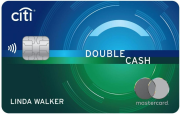The content on this page is accurate as of the posting date; however, some of the offers mentioned may have expired.

Love them or hate them, credit cards are here to stay. They have become so ingrained into our daily existence, that there are certain things that simply cannot be accomplished without one – such as making an in-flight purchase on an airplane, for example, reserving a hotel room, renting a car or purchasing items online. Many Americans have more than one. In fact, most carry five to ten different kinds of cards in their wallets.
Having multiple credit cards can be beneficial if handled properly, but staying on top of more than one account can prove both time-consuming and challenging. This is particularly true if you have more than one card that earns rewards because you might not be paying close enough attention to the types of perks you are earning or taking care to be sure that you’re maximizing those rewards programs and getting the most out of your cards.
It’s also tricky to keep track of your bills when you have multiple accounts, knowing exactly where to send it what amount and when. It’s very easy to lose track of things and think that you’ve already sent in a payment when, in fact, you haven’t. Having multiple credit card accounts to worry about puts you at greater risk for amassing late payment charges, which are not only annoying and expensive, but have a negative effect upon your credit score.
The only way to effectively manage multiple credit card accounts is to proactively take the necessary steps to get everything organized. Doing so will save you time, money and make your finances a lot less frustrating. Here’s how:
Coordinate
If you have more than one credit card account, your payment due dates may be scattered all throughout the month. If that is the case, it is much easier to be late on payments or even miss one entirely. It also means that you have to put in a lot more time monitoring your accounts and checking in to see whether or not a payment is due. By coordinating the due dates on all of your cards, you lessen the possibility for one or more of them to fall through the cracks. Call up each of your card issuers and tell the customer service representative that you want to change your payment due date and most of them will likely be amenable to doing so. Schedule as many accounts as you can afford to come due at the same time. This way you can sit down once a month or even twice a month if need be and pay all of your bills in one fell swoop as opposed to having to worry about it one a week or every few days.
Pay Online
Nowadays, pretty much every credit card comes with the option to make payments on line. Instead of going through the tedious process of writing a check and dropping it in the mail, all you need do is go to your creditors website and set up an online account, log in and transferring funds right from your checking account. Not only do you spare yourself the cost of a stamp but it is better for the environment. It is also quick, easy and your payment gets applied to the account faster with zero possibility of your payment getting lost in the mail.
Automate Payments
If you are the type of person who always, no matter what, has enough money in your checking account each month to cover all of your expenses, you should definitely look into setting up automated payments to your credit card. You can choose a specific due date on which a pre-determined amount will automatically be transferred from your bank account and applied to your outstanding credit card debt. This is a great way to make sure that you never miss a payment.
The only potential catch is that you must be certain to keep enough money in your checking account in order to avoid overdraft fees.
Consolidate
It might be wise to consider shifting a couple of your current balances onto a single credit card to reduce the overall number of accounts you owe money on. Having three or even four lines of credit to keep track of is an easier undertaking than attempting to manage six or seven accounts. If you find an appealing balance transfer offer, you may even save money in interest charges at the end of the day.





